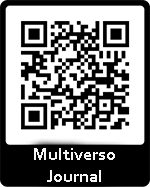Rational and irrational critiques of the models of rational modernity in Latin America
DOI:
https://doi.org/10.46502/issn.2792-3681/2023.5.5Keywords:
modernity, paradigm, critical/analytical method, philosophical/social method, Latin America.Abstract
Modern rationality from its Cartesian beginnings has laid the foundations of the present rational modernity, this key premise is fundamental for the elaboration of this article, whose purpose is to establish solid criticisms as valid scientific refocuses on the current modernity. Such criticisms are of a historical-sociological and epistemological nature and, as a whole, intend to offer a critical solidity by breaking down certain characteristics and elements of analysis that configure the volatile and mutant reality of Latin America; possessing sui generis features that deserve to be approached under the magnifying glasses of different scientific disciplines such as sociology, historiography, philosophy and others. Certainly, different methods and scientific approaches from both sociological and historical/philosophical (phenomenology) analyses were used in an interdisciplinary manner. Likewise, aspects of the past were approached through the use of the deductive and inductive method, with the purpose of establishing a series of fundamental criticisms to the historical development reached by the rational and ethnocentric modernity that prevails in the contemporary complexity. It is concluded that the purpose of this article is to approach the understanding of the changing aspects related to epistemic modernity, which becomes sinuous, diffuse, and ambiguous with respect to philosophy in its various paradigms.
References
Barahona Arriaza, E. (2004). Teoría de la racionalidad y crítica social en Theodor W. Adorno utopía y razón dialéctico-estética en su filosofía. Madrid: Universidad Complutense. https://hdl.handle.net/20.500.14352/55981
Bauman, Z. (1997). Modernidad y Ambivalencia. Barcelona: Anthropos.
Corredor, C. (1990). Modernismo sin modernidad. Modelos de desarrollo en Colombia. Revista Controversia, (161), 11-85. https://doi.org/10.54118/controver.v0i161.1123.
De Sousa Santos, B. (2011). Descolonizar el Saber, Reinventar el Poder. Montevideo: Ediciones Trilce.
Dussel, E. (2018). Entrevista de la Revista Politikón: “Donde hay un oprimido es necesaria una filosofía de la liberación” realizada el día 14 de julio de 2018, en Buenos Aires.
García, N. (1999). La globalización imaginada. Buenos Aires: Paidós.
González, F. (2005). ¿Qué es un Paradigma? Análisis Teórico, Conceptual y Psicolingüístico del Término. Investigación y Postgrado, 20(01), 13-54.
Habermas, J. (2010). Ciencia y técnica como "ideología". Madrid: Editorial Tecnos.
Halperin, T. (1980). Proyecto y construcción de una Nación (Argentina de 1846- 1880). Buenos Aires: Fundación Biblioteca Ayacucho.
Lander, E. (2000). La Colonialidad del Saber: Eurocentrismo y ciencias sociales. Buenos Aires: Colección Sur CLACSO.
Mariátegui, J.C. (1925). Peruanicemos al Perú. Serie de artículos escritos por José Carlos Mariátegui, sobre temas nacionales, publicados en su mayoría, en la sección "Peruanicemos al Perú" de la revista Mundial, desde 1925 hasta 1929. Lima: El Andariego.
Márquez, Á. (1997). Modernidad y postmodernidad Entre el humanismo histórico y la razón escéptica. Ágora, (11), 123-132.
Martin-Barbero, J. (1999). La globalización en clave cultural: Una mirada latinoamericana. Guadalajara: Conferencia impartida en el Departamento de Estudios culturales del ITESU.
Moreno Fernández, A. (2011). La ambigüedad de la modernidad según R. Girard. Violencia, religión y sociedad. Daimon Revista Internacional de Filosofía, (54), 61-76.
Morin, E. (1981). El Método: La naturaleza de la naturaleza. Vol. 01. Madrid: Ediciones Catedra.
Najmanovich, D. (2007). El desafío de la Complejidad: Redes, cartografías dinámicas y mundos implicados. Utopía y Praxis Latinoamericana, 12(38), 71-82.
Paredes, N. (2021). Gilles Lipovetsky: "El mayor seductor del mundo no es una geisha ni una supermodelo, es el capitalismo" En: BBC Mundo: https://www.bbc.com/mundo/noticias-55798087
Pérez, A. (1997). Globalización, ciudadanía y política social en América Latina. Tensiones y contradicciones. Revista Venezolana de Análisis de Coyuntura, 04 (01), 301. https://doi.org/10.54642/rvac.v4i1.11194.
Pérez-Agote. J. (2017). Re descripción del concepto clásico de modernidad. Revista Sociología Histórica, (07), 11-40.
Pino I., E. (1996). Ideas y Mentalidades de Venezuela. Caracas: Editorial Alfa.
Salazar, H. (2022). Modernidad, Ideología y Lenguaje: La semántica de la representación de mundo. Revista de Filosofía, 39(Especial), 26-60. https://doi.org/10.5281/zenodo.6413274.
Wallerstein, I. (2005), Análisis de sistemas-mundo. Una introducción, 2a. edición, México, Siglo XXI Editores.
Published
How to Cite
Issue
Section
License
Copyright (c) 2023 Salvador Cazzato Dávila, Manuel Alejandro Núñez

This work is licensed under a Creative Commons Attribution 4.0 International License.
The authors who publish in this journal agree to the following terms:
The authors retain copyright and guarantee the journal the right to be the first publication where the article is presented, which is published under a Creative Commons Attribution License, which allows others to share the work prior to acknowledgment of the authorship of the article. work and initial publication in this journal.
Authors may separately enter into additional agreements for non-exclusive distribution of the version of the work published in the journal (for example, placing it in an institutional repository or publishing it in a book), with an acknowledgment of its initial publication in this journal.



















